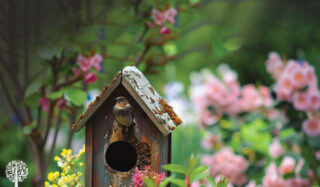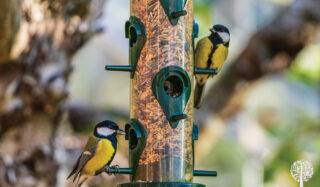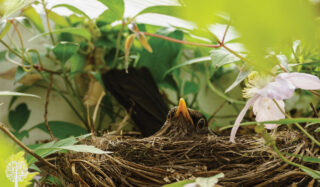Attracting Birds to Your Garden: Do our feathered friends need bird feeders?
Who doesn’t love a bird feeder? They attract many birds, and you can spend endless hours watching them. But there’s a growing debate about whether bird feeders do more harm than good for our feathered friends.
Habitual Feeders
One of the most compelling arguments against having bird feeders in the garden is that birds can become habituated to them. A 2021 research paper published the in the journal Biological Conservation suggests that the constant supply of peanuts and seeds offered to the great or blue tit in British gardens has caused the bird’s strength and population to increase. This has upset ecological balance, as the bird has been winning contests for prime nesting locations over its subordinate cousins, the willow tits, whose population has declined by 40%.

Territorial Issues
Some birds, like hummingbirds or starlings, become territorial over feeders, excluding others from them and denying them a food source. I’ve broken up aggressive chirping and clacking of wings in my garden as one hummingbird tells another to get lost.
Cleanliness
It’s a lot of work to keep a bird feeder clean. Whether it’s a nectar feeder or one with birdseed, wash all feeders with warm, soapy water every two days and replace the food. Hummingbird feeders must be cleaned daily in hot weather, as heat can breed bacteria.

Birds poop in their food. If this happens and another bird eats the contaminated seeds, it will get sick. The same goes for you if you touch the feeder and don’t wash your hands afterward.
Feeders also spread diseases such as the avian flu. Two years ago, an outbreak in North America spread by wild birds inspired experts to recommend taking down feeders to help stem the disease.
Attracting Undesirables
Bird feeders attract undesirables to the garden, such as rodents, raccoons, and even predatory aggressive crows. All of the above are looking for birdseed or other snacks. All a cat has to do is sit by a bird feeder to be well-fed.
Native Plants: The Right Food
With all this stacked against them, is there any reason to have a bird feeder? Gregor Beck is a senior strategist for Birds Canada, a non-profit organization advocating for bird conservation.
“You might think that birds are getting most of their food from feeders, but they are foraging more diversely than you might think,” he explains.
Planting native shrubs and plants increases your region’s biodiversity and provides a more diverse range of bird food choices. Berries, seeds, flower nectar, and the insects that call the plant home are excellent for birds. Also, native species are the plants most familiar to birds who call your region home.

Beck encourages gardeners to think seasonally. Don’t tidy up the garden in fall, but keep the seed heads on the plants all winter; have both summer berry-producing plants and winter ones available, like holly.
“Bird feeders, especially in cold weather, are a very good supplement for food,” Beck says. “They are also a wonderful way for people to connect with birds.”
So, we can make the feeder obsolete and enjoy our feathered friends by planting a garden of favorite bird treats. Good for the environment and for the birds!
For more information on bird-friendly gardens, check out Birds Canada’s website, birdscanada.ca.